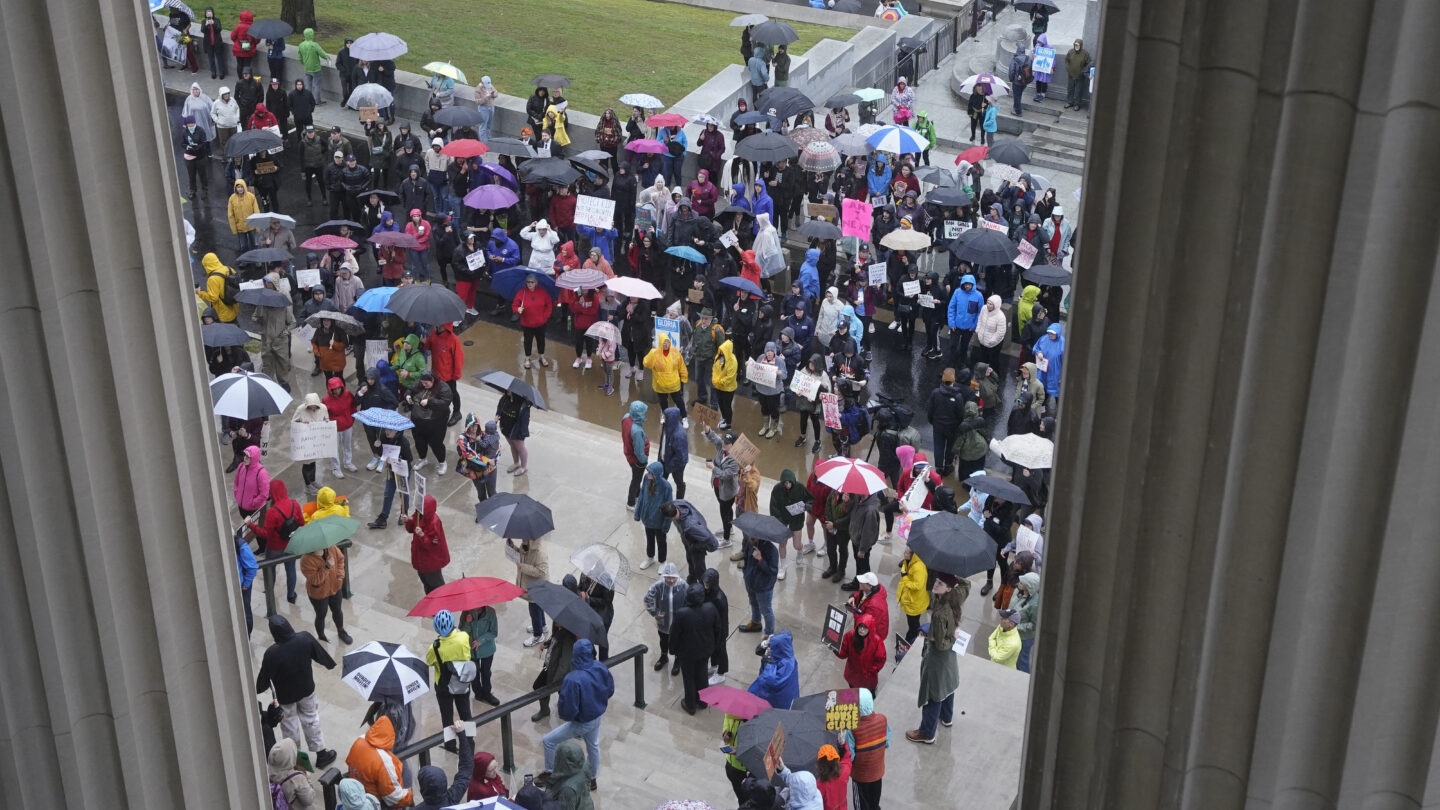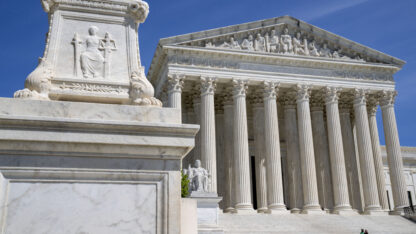Tennessee gun-control push at crossroads as proposal stalls

Chances are shrinking fast for a key gun-control proposal to make it out of the Tennessee Legislature in the wake of a deadly school shooting, as GOP lawmakers are pushing back against the Republican governor’s proposal to keep firearms away from people who could harm themselves or others faces.
Tennessee has become a flashpoint in the nation’s heated debate over gun rights. Two young Black Democratic lawmakers were expelled from the state House for a protest over gun control. The pair has since been reinstated.
Pressure to pass gun safety measures has also come from students, parents, politicians and others after last month’s shooting at The Covenant School in Nashville, which killed three children and three adults.
“Tennesseans are asking us to set aside politics and personal pride,” Gov. Bill Lee said in a video Wednesday.
As of Thursday, the path ahead was unclear.
Facing scrutiny over the expulsions and public demands for gun control, Republican lawmakers are hurrying to wrap up the legislative session this week. The GOP has supermajorities in both chambers.
In the final days of the session, Lee has mounted a campaign for “temporary mental health orders of protection.”
Law enforcement would first determine if a person is a threat, then a hearing with the person in question would be held, and a judge would rule whether they should indeed have their weapons taken away temporarily. If so, the person would have to surrender their guns, ammunition and any handgun carry license to a third party within 48 hours, for up to 180 days.
A person facing a order of protection petition would be offered a court-appointed attorney, and anyone determined to have filed a frivolous report could face a felony perjury charge. There would also be a mental health evaluation.
Lee said top lawmakers gave input on the proposal and argued it isn’t a “red flag law.” He called that term a “toxic political label meant to draw lines in the sand so nothing gets done.”
In a cool reception, House Republicans didn’t appear to make a distinction on terminology.
“Any red flag law is a non-starter,” the House GOP caucus tweeted Wednesday. “Our caucus is focused on finding solutions that prevent dangerous individuals from harming the public and preserve the Second Amendment rights of law-abiding citizens.”
Lt. Gov. Randy McNally, who runs the Senate, has said the governor’s proposal strikes the right balance.
The path ahead is unclear, and Lee’s plan still hasn’t been put onto a bill. As Senate Democrats called for a vote on the proposal, Sen. Jeff Yarbro of Nashville on Thursday tried to force a floor vote on a similar plan. Republicans rejected it on procedural grounds.
Republican House Speaker Cameron Sexton said he’s committed only to finding “the best path forward to protect Tennessee children.”
Public pressure has continued to grow.
Bill Frist, the former Republican U.S. Senate majority leader from Tennessee, was among the authors of a newspaper column calling for so-called extreme risk protection orders and other changes. Frist is a heart and lung transplant surgeon.
“The vast majority of Americans support sensible gun laws. The vast majority of Tennesseans do too,” the column states.
Gun lobby groups have quickly cried foul.
The Tennessee Firearms Association said Lee’s proposal shows “callous disregard of the United States Supreme Court and the Constitution.”
The National Rifle Association’s legislative arm said Tennessee law already allows for “detention of dangerous individuals experiencing a mental health crisis by a law enforcement officer, physician, psychologist, or certain other designated professionals.”
Lee has said “involuntary commitment” would “restrict all kinds of constitutional rights, including the Second Amendment.”
In the March 27 shooting at The Covenant School, police say the shooter was under a doctor’s care for an undisclosed “emotional disorder.” However, authorities haven’t publicly stated a link between that care and the shooting. Police also said the shooter was not on their radar before the attack.







